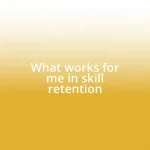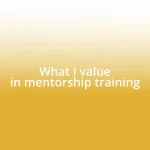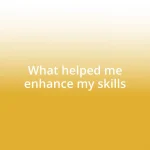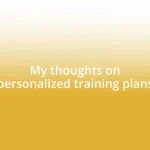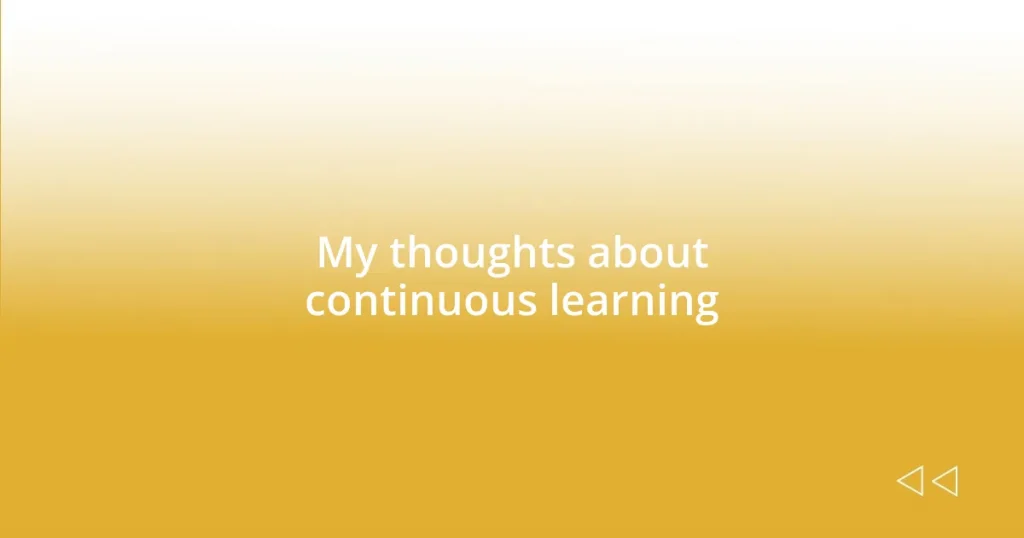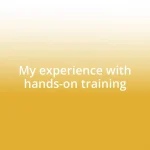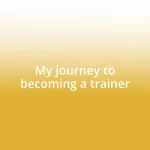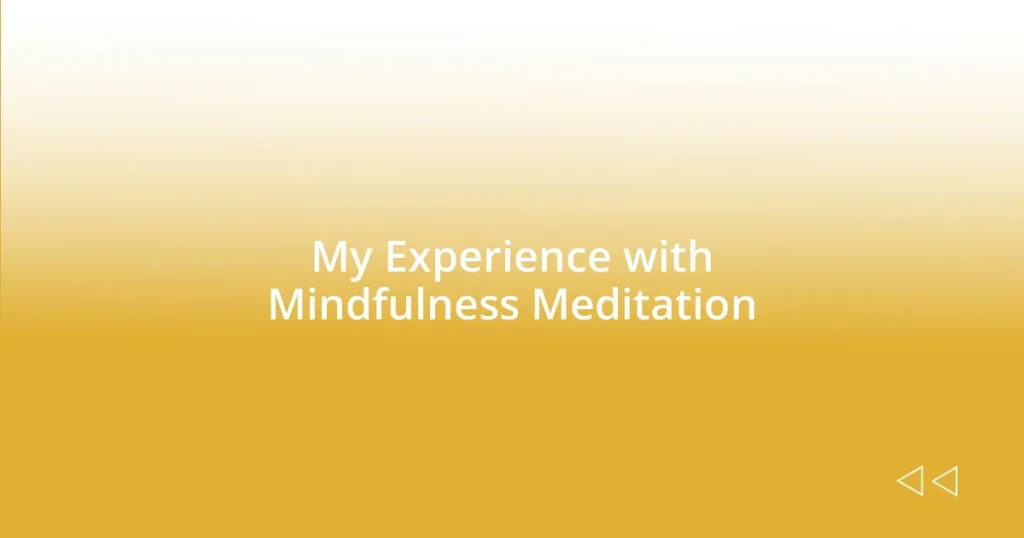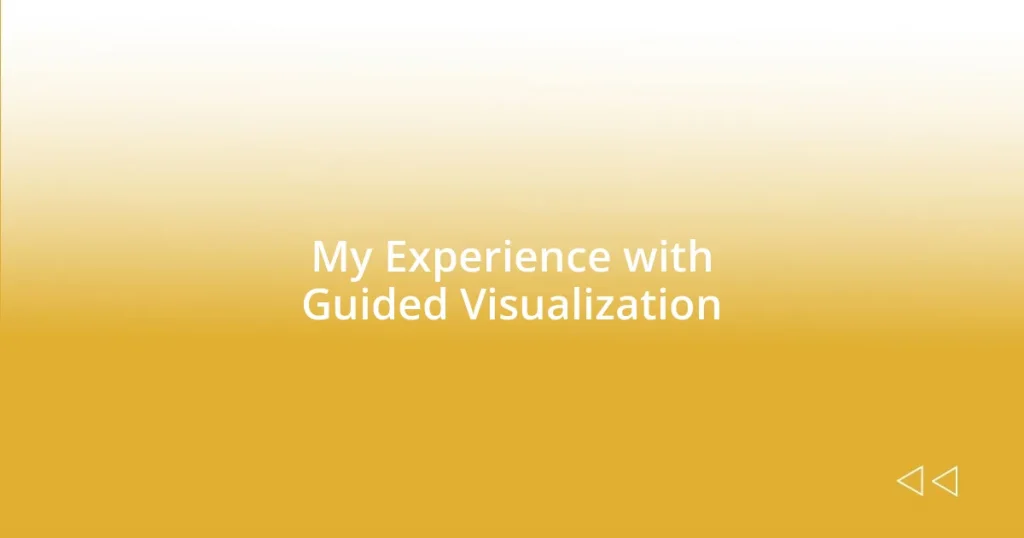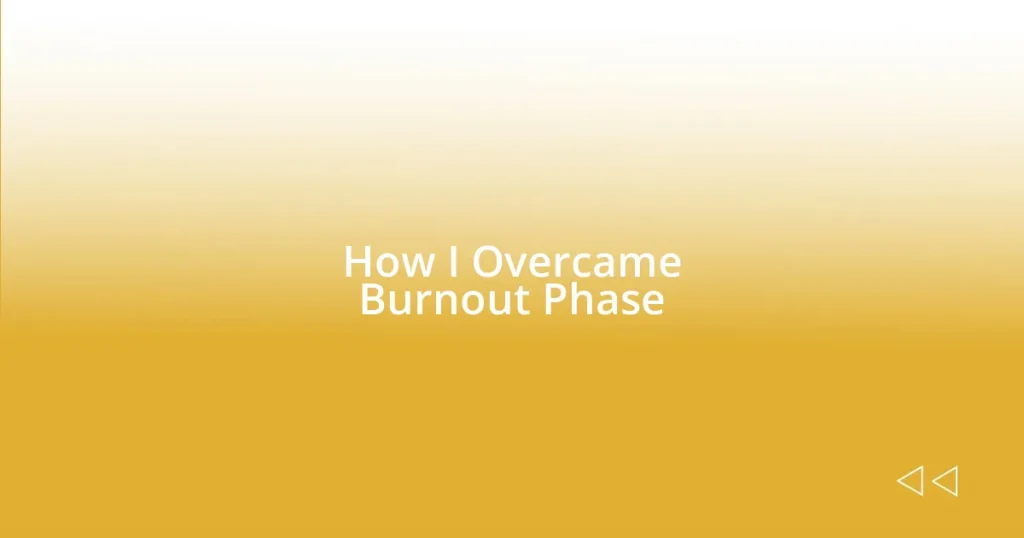Key takeaways:
- Continuous learning enhances resilience and confidence, turning challenges into stepping stones for success.
- Lifelong education opens new opportunities and fosters critical thinking and community connections.
- Effective learning strategies include setting SMART goals, creating routines, and engaging actively with the material.
- Creating a learning culture involves encouraging curiosity, providing development opportunities, and recognizing achievements.
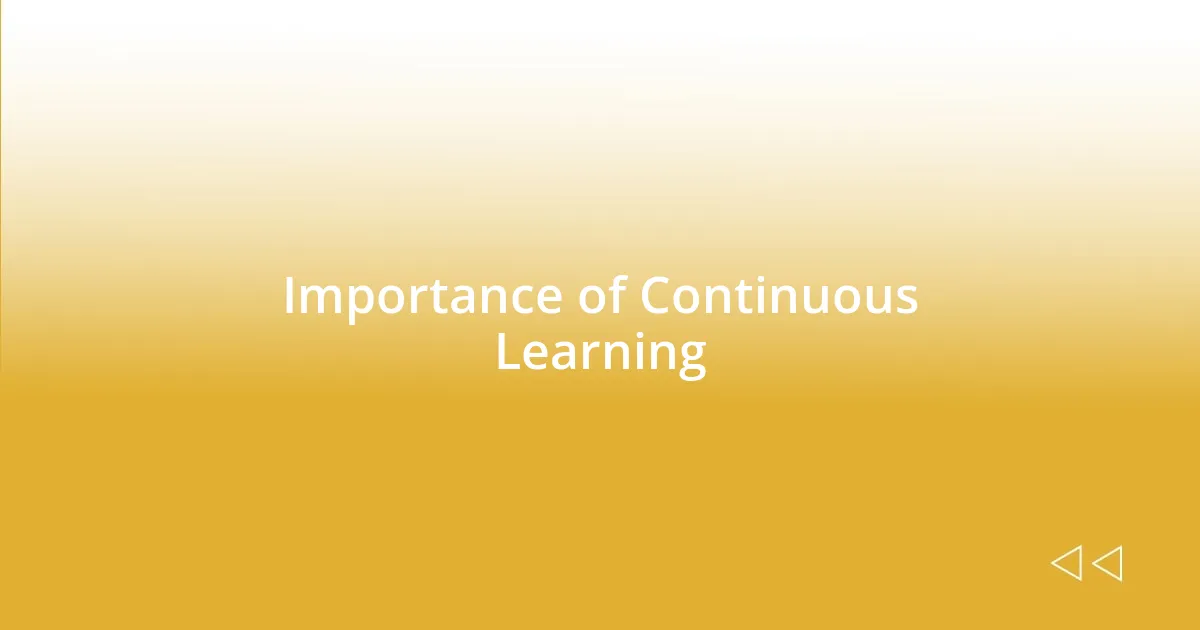
Importance of Continuous Learning
Continuous learning is essential in today’s rapidly changing world. I remember a time when I felt overwhelmed by new technologies emerging in my field. This prompted me to dive into online courses, and the rewards were invaluable. Have you ever experienced that thrill of mastering something new? It’s like unlocking a new level in a game—each skill acquired enhances your capabilities.
Additionally, embracing continuous learning fosters resilience. There have been moments in my career when I faced setbacks—whether it was a project failure or feedback that stung. However, the knowledge I gained in those tough times became a stepping stone for future successes. Don’t you think that learning from challenges makes the journey all the more meaningful?
Lastly, I find that continuous learning builds confidence. Each new concept or skill I grasp empowers me to tackle more complex tasks confidently. Have you ever walked into a situation feeling well-prepared because of the effort you put into learning? It’s a game changer, and it often inspires those around us to engage in their learning paths as well.
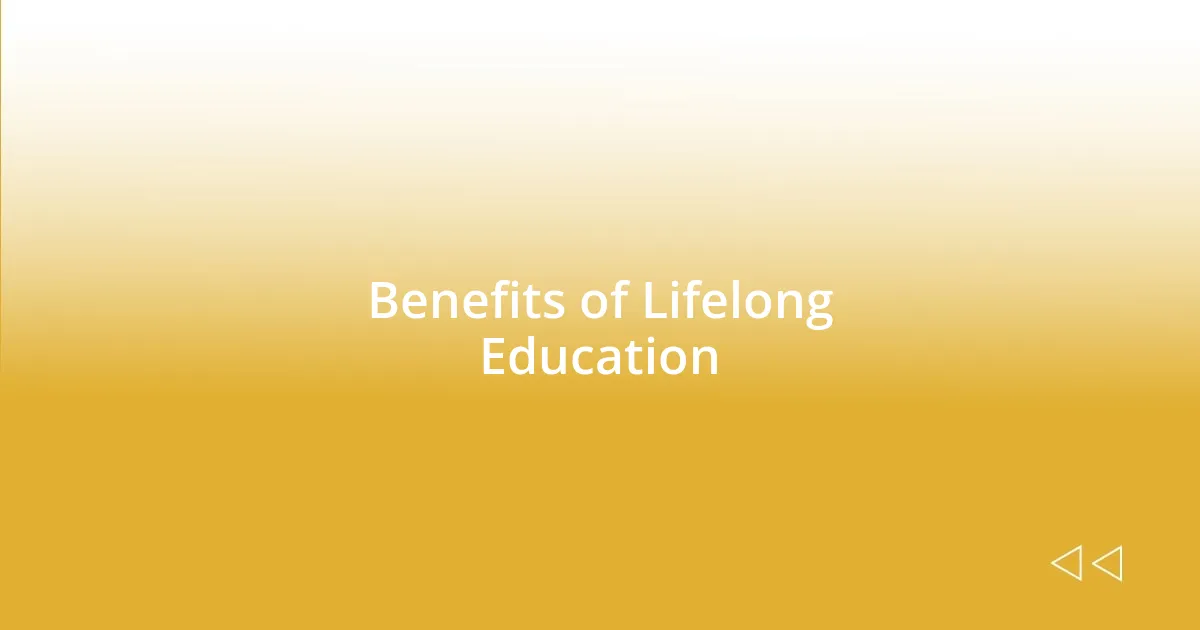
Benefits of Lifelong Education
Continuous learning opens doors to new opportunities. I remember when I first sought a promotion at work; the extra training I pursued positioned me as a stronger candidate. It was exhilarating to realize that my efforts not only enhanced my skill set but also made me more marketable. Have you ever felt that surge of excitement when someone acknowledges your growth?
Another significant benefit is the development of critical thinking skills. I often find myself in discussions where the ability to analyze and critique information is essential. By engaging in various learning experiences, whether through books or community workshops, I’ve sharpened my analytical mindset. Don’t you think that questioning assumptions is key to personal and professional evolution?
Lifelong education also nurtures a sense of community. Joining study groups or online forums has introduced me to people who share similar passions, making the learning process even more enriching. There’s something special about collaborating with others who motivate and challenge you. Have you ever formed bonds through the shared pursuit of knowledge? It’s a reminder that we’re never alone on this journey.
| Benefit | Personal Experience |
|---|---|
| Opportunities | Pursuing additional training led to a career promotion. |
| Critical Thinking | Engaging in discussions has enhanced my analytical skills. |
| Community | Learning in groups has fostered connections and motivation. |
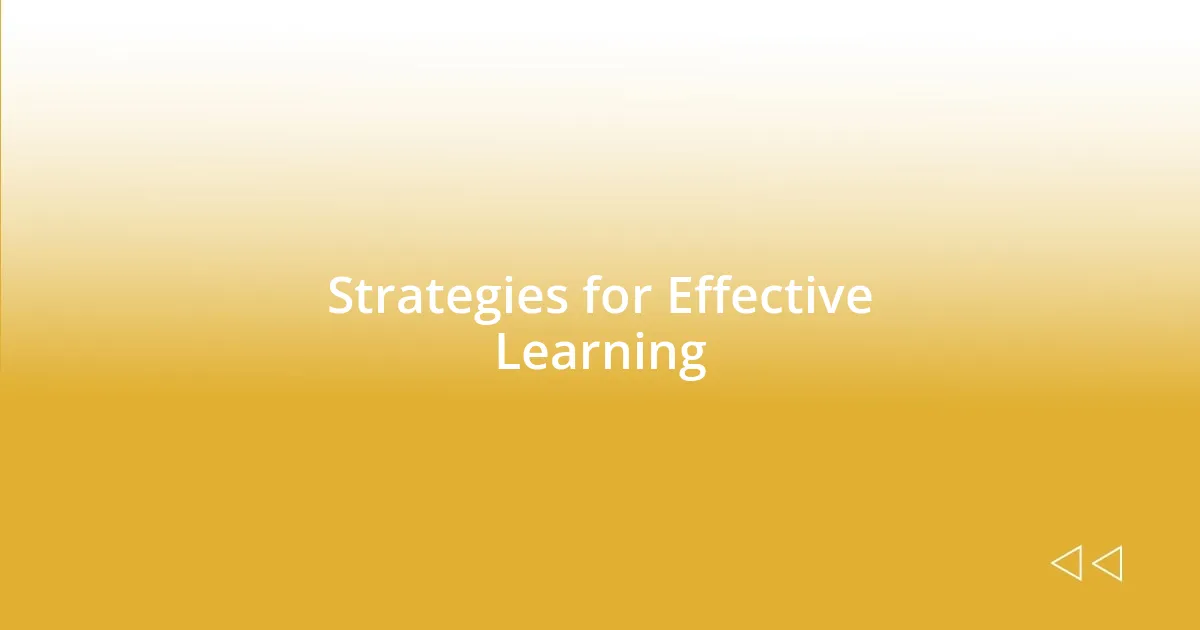
Strategies for Effective Learning
When it comes to effective learning, I’ve found that setting clear goals can make a significant difference. Recently, I embarked on a project to enhance my public speaking skills. By breaking it down into smaller, manageable objectives—like practicing in front of friends or recording myself—I felt less intimidated and more focused. It’s fascinating how small wins can build momentum, don’t you think?
Here are some strategies that can amplify your learning experience:
- Set SMART Goals: Specific, Measurable, Achievable, Relevant, and Time-bound objectives help guide your learning path.
- Create a Routine: Establishing a consistent schedule aids retention and transforms learning into a habit.
- Engage with the Material: Whether it’s through discussion, teaching others, or applying concepts in real life, active engagement fosters deeper understanding.
- Utilize Multiple Resources: I often switch between books, podcasts, and online courses to keep things fresh and diverse; variety enhances retention for me.
- Reflect and Adapt: Periodically reviewing what you’ve learned ensures absorption and allows adjustments in your strategies.
One of the most impactful strategies I’ve discovered involves seeking feedback. After presenting a project to my peers, I made a point to invite constructive criticism. The insights I received, while sometimes tough to swallow, were instrumental in refining my approach and understanding different perspectives. It’s almost exhilarating to see how feedback can transform your learning journey, isn’t it?
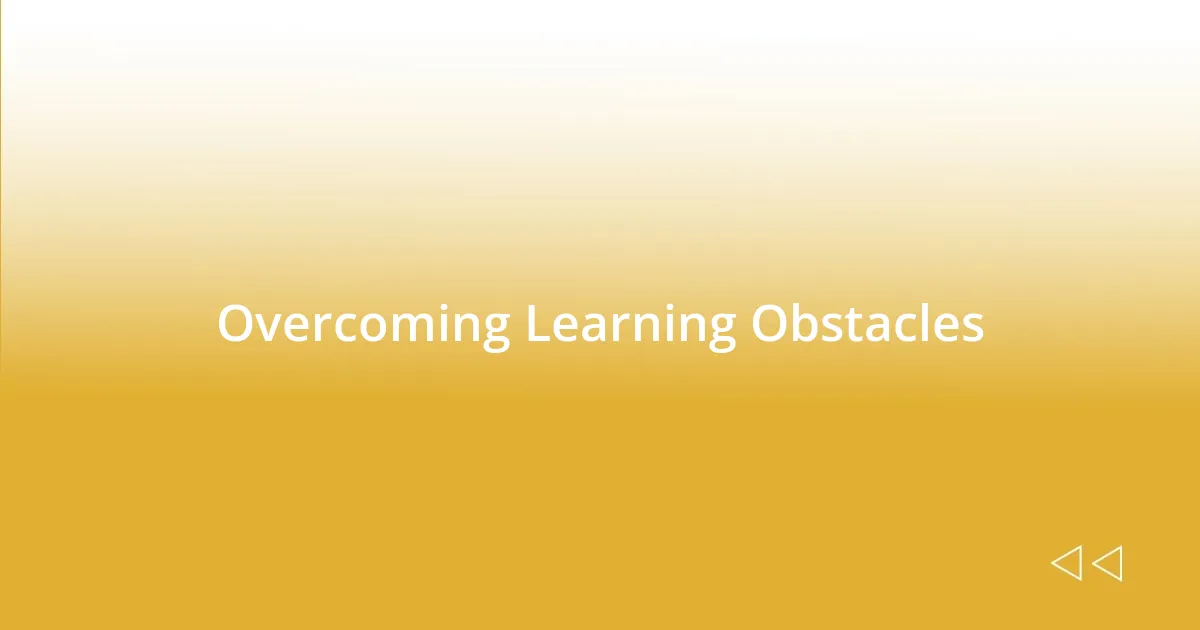
Overcoming Learning Obstacles
I’ve faced my fair share of learning obstacles, and navigating them has often felt daunting. For instance, I struggled to adapt to online learning during the pandemic. Initially overwhelmed, I realized that finding a comfortable study environment made a world of difference. Have you ever noticed how your surroundings can either inspire or hinder your focus? Changing my setting helped me regain my motivation and immerse myself in the material.
Procrastination has also been a challenging hurdle for me. There were times when I avoided tasks simply because they felt intimidating. But I discovered that breaking assignments into bite-sized pieces made them much more approachable. The sense of accomplishment I felt after completing each small task was surprisingly motivating. Isn’t it amazing how addressing just one small part can shift your entire perspective?
Then there’s the fear of failure. That emotional barrier can be paralyzing. When I embarked on a new learning endeavor, the fear of not succeeding loomed large. However, I began to see setbacks as opportunities rather than failures. Just recently, I took a course where I stumbled through a presentation but learned invaluable lessons in the process. I found that embracing failure not only alleviated my anxiety but also fostered resilience. Have you ever recognized that every stumble can become a stepping stone forward?
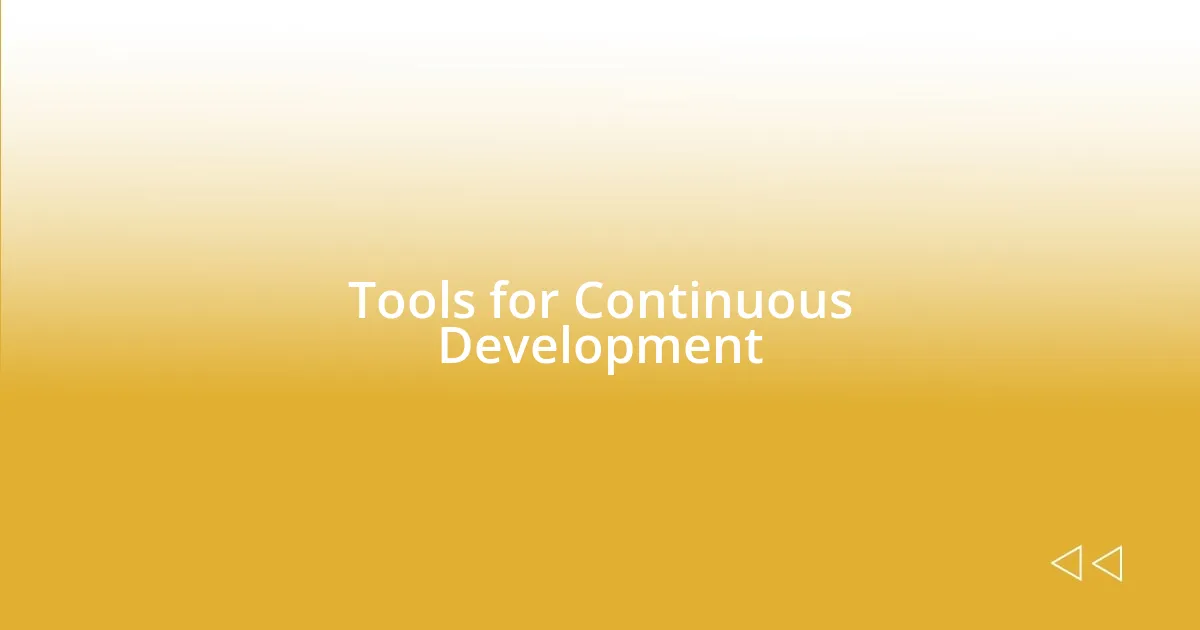
Tools for Continuous Development
When I think about tools for continuous development, I immediately gravitate towards online learning platforms. I remember the first time I signed up for an online course; it felt a little overwhelming, but the flexibility was a game-changer. The ability to learn at my own pace and revisit tricky concepts made a significant difference. Have you ever experienced that “aha” moment while going through a video or module a second time?
Another essential tool in my learning toolkit is collaborative platforms. I often use apps that allow me to collaborate with peers on projects. The exchange of ideas not only enhances my understanding but also introduces me to different perspectives. I feel that brainstorming sessions over shared documents lead to breakthroughs that I might not achieve alone. Don’t you think teamwork can elevate learning to new heights?
Lastly, I can’t stress enough the value of feedback tools. There’s something empowering about using apps designed for receiving peer reviews or assessments. After utilizing one for my latest project, I was amazed at how constructive comments shaped my work. Instead of cringing at criticism, I learned to view it as a vital roadmap for improvement. Isn’t it incredible how other people’s insights can illuminate blind spots in our knowledge?
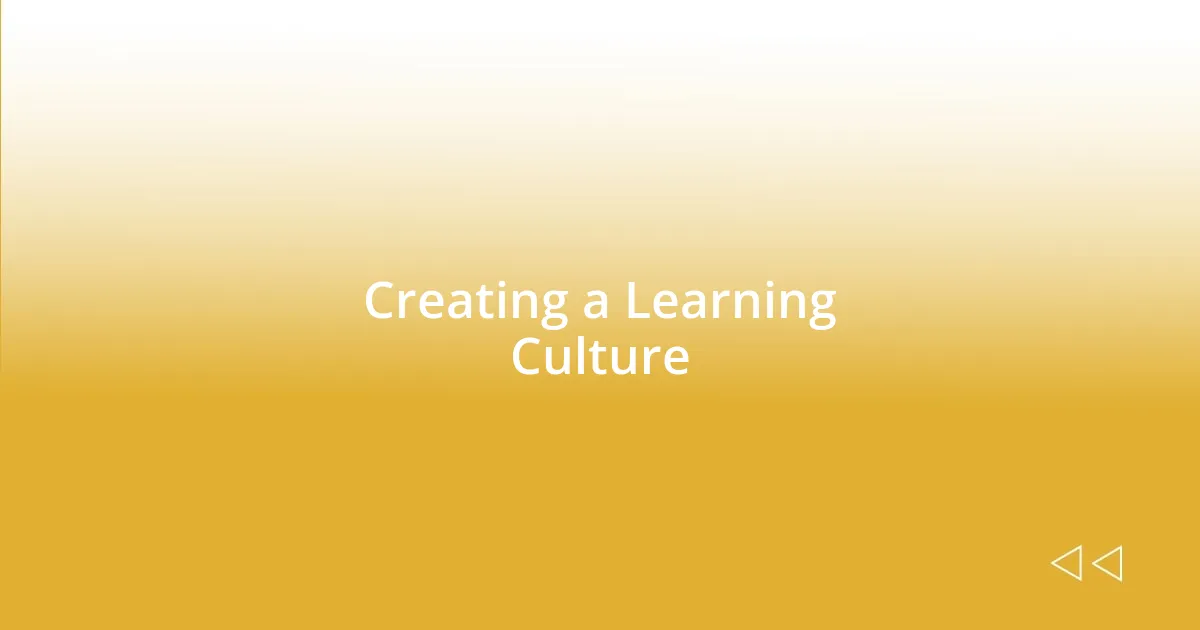
Creating a Learning Culture
Creating a learning culture starts with fostering an environment where curiosity is celebrated. I remember when I worked on a team that encouraged open discussions during meetings; it transformed the way we approached problem-solving. Each voice mattered, and it felt empowering to share ideas freely. Have you ever been in a group where the atmosphere felt safe enough to ask even the most basic questions? Those moments can spark real innovation.
Moreover, providing opportunities for professional development is crucial in nurturing a learning culture. One organization I was part of instituted a monthly workshop series that featured different topics, allowing us to explore new skills and broaden our horizons. I’ll never forget the excitement in the room when a colleague shared insights from a recent conference—everyone left inspired and eager to apply what we learned. Isn’t it energizing when you can directly connect newfound knowledge to your daily work?
Finally, recognizing individual and team achievements promotes a culture of continuous learning. I’ve seen how acknowledging someone’s effort to embrace new challenges creates a ripple effect. One time, my boss highlighted a teammate’s initiative to implement a new process—it not only motivated that person but also inspired others to pursue their own learning journeys. How powerful is it to be recognized for taking risks and growing? It truly reinforces the idea that learning is an ongoing journey, not a destination.
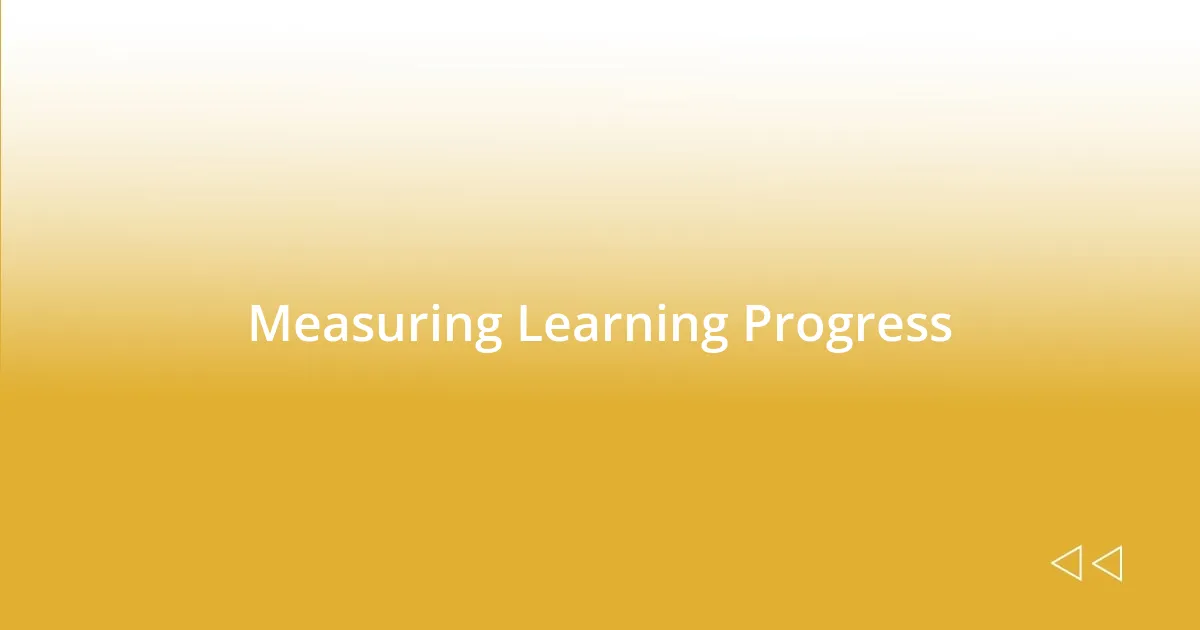
Measuring Learning Progress
Measuring learning progress is something I find both fascinating and challenging. I often use self-assessment quizzes after completing a module. It’s amazing how these quick tests help me pinpoint exactly where I stand. Have you ever been surprised at what you thought you knew versus what you actually understood? I know I have; it’s like checking your compass and realizing you weren’t heading in the right direction after all.
Another method I rely on is reflective journaling. There’s something incredibly beneficial about writing down my thoughts and feelings about what I’ve learned. When I look back at my entries, I can see a clear trajectory of growth. I remember a time when reflecting on a complex topic allowed me to connect disparate ideas. It’s rewarding to see how much I’ve improved over time, don’t you think?
Moreover, I like to solicit feedback from others to gauge my progress. I often ask peers or mentors to review my work. Their insights can provide me with a fresh perspective that I might not have considered. Once, after presenting a project, the feedback I received highlighted areas for improvement that I hadn’t noticed. It was an eye-opener! Those moments really make the learning process feel collaborative, don’t they?




